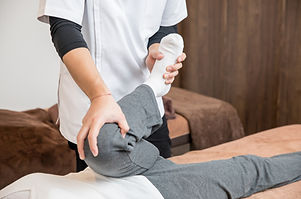Post-Surgery Rehabilitation
Services

Can't find your condition?
Post-Surgery Rehabilitation
After going through surgery, both your physical and mental health is affected as your independence becomes limited. Through our treatments, we can help you reach your goals and regain your life again.
Common conditions we cover:
This is when degeneration of the joints are too severe to recover with non-invasive treatments. It is more common in the elderly and in the hip and knees.
This is when the fracture cannot recover or heal on its own without invasive treatments. It is more common in open fractures, where the bone tears the skin open leaving it exposed.
This is when the ligaments that support your joints are torn, causing loss in mobility and independence. It is used for conditions such as Anterior Cruciate Ligament tear (ACL), Medial Collateral Ligament tear (MCL) etc.
This is when there is significant degeneration to discs located in between your spine, causing intense pain. It is more common when the degeneration has been untreated for an extended period of time, and is unable to recover from non-invasive treatments.
What you can EXPECT
Clinical approach utilising skilled, specific hands-on techniques with the benefits of diagnosing and treating soft tissues and joint structures for purpose of modulation pain, increasing range of motion (ROM), reducing or eliminating soft tissue inflammation, inducing relaxation and facilitating movement and improving function.
Relief pressure on one or many spinal discs and pinched nerves of the spinal column.
Increase blood flow in tissues, decrease inflammation and pain and promote vasoconstriction which increases blood flow.
Helps with speeding up the healing process from the increase in blood flow, decreases in pain from the reduction of swelling and oedema.
Uses a mid-frequency electrical signal to treat muscular spasms and strains, producing a massaging effect over the affected area stimulating the secretion of endorphins which blankets the pain away.
Help with decreasing pain and muscle spasm, increasing circulation and muscle flexibility and improving overall flexibility.
Strength, mobility, flexibility training and cardiovascular conditioning will be taught to improve your physical strength, reduce pain and avoid the recurrence of future injury.
